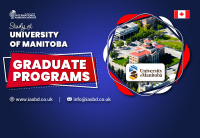If you are considering studying in Canada, one of the first and most crucial steps is obtaining a student visa. However, many international students face challenges during this process, with Canadian student visa rejection being a common concern. Understanding the common reasons for rejection and how to avoid them can significantly increase your chances of visa approval. In this blog post, we will explain the top reasons for Canada student visa rejection, the Canada student visa rejection rate, and how you can improve your chances of securing approval.
What is the Canada Student Visa?
A Canadian student visa, also known as a study permit, enables international students to pursue studies at a designated learning institution in Canada. If you plan to study for more than six months, you must apply for a study permit. The process involves submitting various documents, such as proof of financial support, an acceptance letter from a Canadian institution, and evidence of ties to your home country.
Canada Student Visa Rejection Rate
The rejection rate for Canadian student visas has been rising, reaching 62% in 2025, the highest in over a decade. This surge follows a period of lower rejection rates before the COVID-19 pandemic, with fluctuations observed during and after the pandemic, as reported in early to mid-2025.
Several factors are influencing this higher rejection rate:
- Increased Demand: Canada's growing popularity as an education destination has led to a surge in applications, intensifying competition.
- Changes in Immigration Policy: Recent shifts in immigration policies and stricter scrutiny by Immigration, Refugees, and Citizenship Canada (IRCC) have contributed to higher rejection rates.
- Application Completeness: Incomplete applications, failure to provide required biometrics, or insufficient proof of funds are among the most common reasons for rejection.
- Applicant Profile: Rejection rates can also vary by applicant’s course of study, with bachelor's degree applicants facing higher rejection rates than those applying to Ph.D. programs.
Top Reasons for Canada Student Visa Rejection
Understanding the reasons behind Canada student visa rejection can help you avoid making the same mistakes. Here are the most common reasons why Canada rejects student visas:
1. Incomplete or Incorrect Documentation
One of the most common reasons for Canadian student visa rejection is submitting incomplete or incorrect documents. If your application is missing required documents or contains errors in the information you provide, it may be rejected. This is why it's essential to double-check your application and make sure you have provided all the necessary documents, including:
- Acceptance letter from a Designated Learning Institution (DLI)
- Proof of sufficient financial support
- Valid passport
- Immigration medical exam (if applicable)
- Police clearance certificate (if required)
2. Insufficient Funds
Another primary reason for rejecting a Canadian student visa is insufficient funds. The Canadian government requires international students to demonstrate that they have sufficient funds to cover their tuition fees, living expenses, and other related costs while studying in Canada. If you are unable to prove that you have enough funds, your application is likely to be rejected.
It’s important to show not only that you have the necessary funds but also that you have a clear plan for how you intend to support yourself throughout your studies. This could include bank statements, sponsorship letters, or evidence of a scholarship.
3. Lack of Ties to Home Country
One of the most critical factors that Immigration, Refugees, and Citizenship Canada (IRCC) considers when evaluating your student visa application is your intent to return to your home country after completing your studies. If you fail to convince the immigration officer that you have strong ties to your home country—such as family, a job, or property—your application may be rejected.
IRCC wants to ensure that you are coming to Canada for legitimate educational purposes and will leave upon completing your studies. Therefore, it’s essential to provide evidence of your intent to return home after finishing your program.
4. Unclear Study Plan or Program Choice
If your study plan or choice of program is not well-articulated or seems inconsistent with your previous education or work experience, the visa officer may question your intentions. For instance, if you apply for a program that doesn’t align with your academic background or career goals, it could raise suspicions about your purpose for studying in Canada.
To avoid this, ensure that your study plan is clear and coherent. Explain why you have chosen your program, how it aligns with your career goals, and how it will help you in your home country after graduation.
5. Previous Visa or Immigration Violations
If you have previously violated the terms of a Canadian visa or any other country's immigration laws, this can significantly impact your chances of getting a student visa approved. Immigration authorities take violations seriously, and a history of overstaying or illegal activity can result in visa rejection.
Always ensure that you have a clean immigration record before applying for a Canadian student visa.
6. Failure to Meet Health or Character Requirements
Canada has strict health and character requirements for international students. If you have a serious health condition or a criminal record, your application could be rejected. In such cases, you may need to undergo a medical exam or provide a police clearance certificate to demonstrate that you meet the necessary health and character standards.
Canada Student Visa Rejection Reasons: A Closer Look
In addition to the common reasons mentioned above, there are a few more nuanced factors that could contribute to Canada student visa rejection:
- Misrepresentation of Information: Providing false or misleading information on your application can result in a permanent ban from entering Canada. It's crucial to be honest and transparent when submitting your documents.
- Unrealistic Financial Plans: While demonstrating sufficient funds is crucial, presenting an unrealistic financial plan can cast doubt on the proposal's credibility. Ensure that the financial support you claim aligns with your actual circumstances and the cost of living in Canada.
- Lack of Educational or Career Progression: If there is a significant gap in your education or work history, or if your chosen program appears to be unaligned with your previous experiences, the visa officer may question your academic progression and career path.
How to Improve Your Chances of Avoiding Canada Student Visa Rejection
To increase your chances of getting your student visa approved, follow these tips:
1. Submit a Complete and Accurate Application
Double-check all your documents before submitting your application. Ensure that all information is accurate, including your personal details, financial records, and educational background. Missing or incorrect documents are among the leading causes of Canadian student visa rejections.
2. Prove Your Financial Stability
Demonstrate that you have enough funds to cover your tuition fees and living expenses. This can include bank statements, affidavits of support, scholarship letters, or any other documentation proving your financial stability.
3. Build Strong Ties to Your Home Country
Provide evidence that you have strong ties to your home country, such as a job offer, family commitments, or property ownership. This helps convince the immigration officer that you intend to return home after completing your studies.
4. Write a Clear and Convincing Study Plan
Your study plan should be clear, realistic, and aligned with your academic background and future career goals. Show the visa officer why you want to study in Canada and how the program will benefit you after your studies.
5. Clean Immigration History
Ensure you have a clean immigration record and avoid issues related to prior visa rejections or violations. If necessary, provide explanations or supporting documents to clarify any past problems that may have arisen.
6. Meet Health and Character Requirements
Ensure that you meet Canada’s health and character requirements. If needed, undergo a medical examination and provide a police clearance certificate to show you meet these standards.
Final Thoughts
While the Canadian student visa rejection rate may seem high, most rejections can be avoided by addressing the common reasons for refusal. By submitting a complete and accurate application, demonstrating financial stability, showing ties to your home country, and providing a clear study plan, you can significantly increase your chances of approval.
Remember, the most common reasons for Canada student visa rejection are often related to incomplete documentation, insufficient funds, and a lack of proof of your intention to return to your home country. By addressing these factors, you can navigate the visa process with confidence and increase your chances of studying in Canada.





















